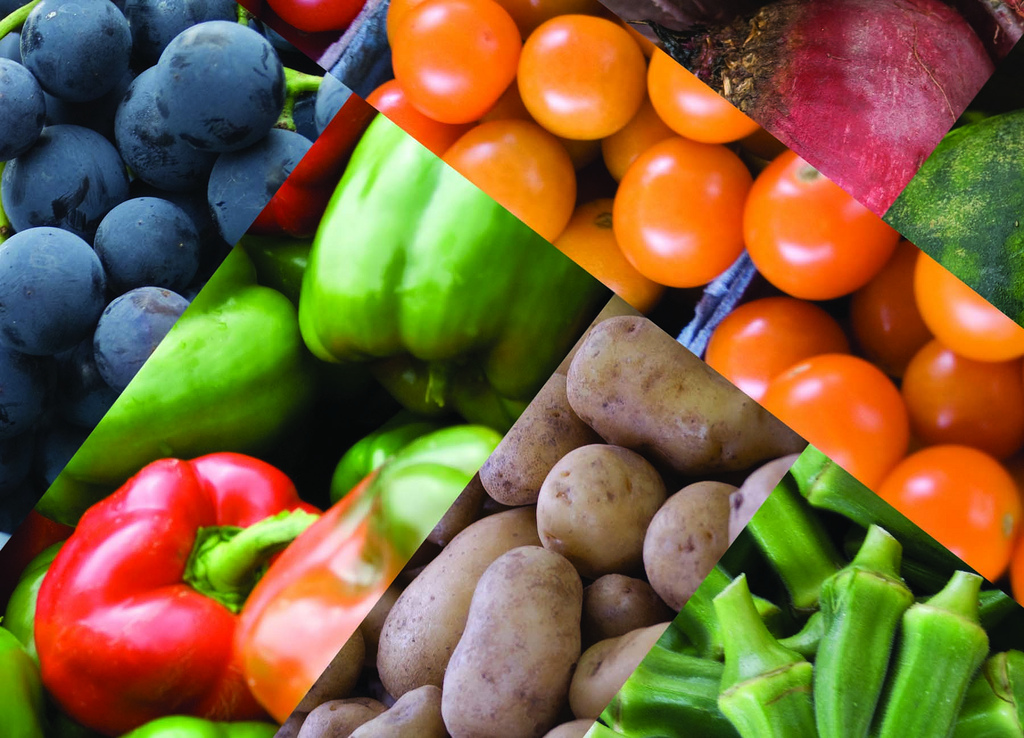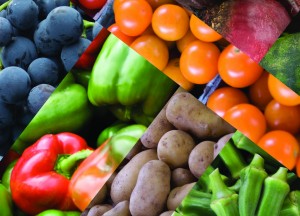
During the crunch of finals, food might be one of the last things on your mind. But certain foods can actually help your brain work at optimal levels, and with a little bit of planning, your diet may help you do better on your finals.

We recently chatted with Dr. Kris Clark, Penn State’s sports nutritionist, about what kinds of foods are best to eat during finals and ways to to make dinner time less stressful during this hectic week.
4 Foods that Improve Mental Function
1. Omega 3 Fatty Acids — eicosapentanoic acid (EPA) and docosanoic (DHA)
These are most often found in fish and dark, leafy vegetables (broccoli, grape leaves, spinach, etc.). “These fatty acids, particularly DHA, are highly active in the brain, and when consumed on a regular basis, they may optimize brain function,” says Dr. Clark.
2. Antioxidants
“Diets that include 4-5 servings of fruits and vegetables on a regular, daily basis contribute multiple sources of antioxidants, such as beta carotene, vitamin C, vitamin A, and a slew of health-promoting flavonoids. Antioxidants protect cell membranes from damaging chemicals known as free radicals. Studies have shown that people who eat more fruits and vegetables have better brain health and memory. This does not occur eating fruits and vegetables the night before exams, but may offer benefits if eaten regularly over months and years,” says Dr. Clark.

3. Carbohydrates
“The brain can only function on glucose, which is principally derived from carbohydrate-rich foods. Eating small amounts throughout the day will keep blood sugar at an even level, supplying the brain with necessary fuel for studying. Healthy carbohydrate picks include whole grain bread or vegetable sticks with hummus, whole grain crackers with low fat cheese or cheese sticks, fresh fruit, low fat Greek yogurt with some walnuts and dried cranberries added,” says Dr. Clark.
4. Fluids
“Drinking water while studying prevents dehydration, one of the top causes of fatigue. Avoid high-calorie drinks such as soda and sport drinks. Extra calories that don’t contain quality nutrients are of no value late at night while studying,” says Dr. Clark.
What to Avoid When Studying
“High-fat, high-sugar foods give students a sense of ‘enjoyment’ while studying, but typically after binging on these foods, students wind up feeling terrible. Instead of nervously eating foods like chips, cookies, and ice cream before an exam, try to eat them after the test is over. Remember, you aren’t physically active when you’re studying, so excess calories should not be the goal while studying. In addition, avoid alcohol. As a depressant, alcohol will promote sleepiness and distract you from studying,” says Dr. Clark.
3 Ways to Make Dinners Less Stressful
1. Create a week-long menu
“This sets the stage for one grocery shopping trip,” says Dr. Clark. “It goes without saying that every dietitian is going to recommend fruits, vegetables, fat-free or low-fat dairy products, lean meats and fish, beans, nuts, and whole grains. These are the foods you want to have on hand. Figure out what you need for five dinners, lunches, and breakfasts, as well as snacks.”
2. Set aside time to prepare and cook foods in advance
“Cut vegetables up and stick them in Tupperware in advance for snacks or steaming. Have grapes and apples available. With an organized food plan it’s easier to stay on track with good eating. Planning and cooking meals on Sunday, to freeze and use during the week, is a great way to save time for weekday dinners,” says Dr. Clark.
If you’re looking for a good tool to help with meal planning, Dr. Clark recommends chooseMyPlate.gov.
3. If time is an issue, consider buying pre-cut or frozen vegetables and other foods
“There’s no doubt about it, cleaning and cutting vegetables takes time. But the value of eating them is worth the time or the extra money spent on the convenience of pre-cut produce. You can also buy frozen vegetables that are cleaned, cut, and ready to be microwaved. These products are extremely nutritious since they were frozen directly upon harvesting to retain all their nutritional properties. Frozen fruits can be added to smoothies or thawed overnight to be ready for breakfast cereals. Take advantage of dried fruits, too. They require no preparation, and you can add them to salads or cereals (hot or cold), or grab them as a fast snack,” says Dr. Clark.
How Do You Plan Meals During Finals?
Do you have other recommendations for ways to eat right during finals? Post your recommendations below in the comments.



